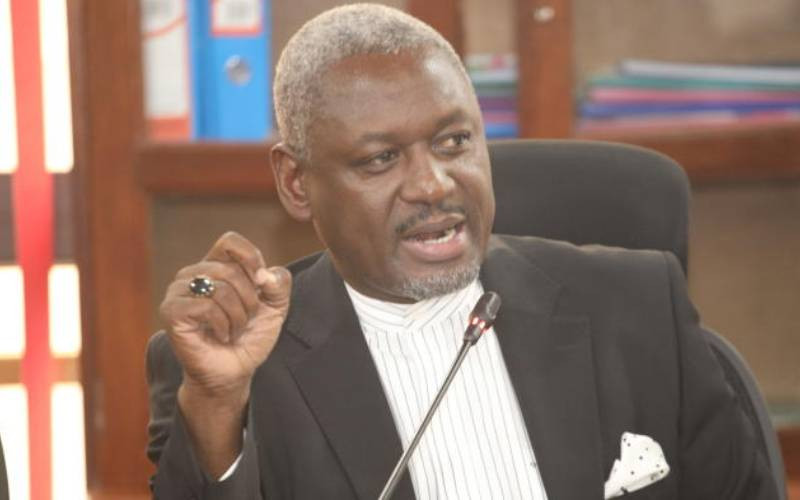As Kenya marked 15 years since the promulgation of the Constitution, Rarieda MP Otiende Amollo says Parliament has made some gains but the Senate remains weak, particularly in the current 13th Parliament.
Amollo said the challenges facing the Senate are both historical and institutional.
“The problem between the National Assembly and the Senate. In the Committee of Experts, we had designated the Senate as the upper house. You who were in Parliament then decided that we did not need a Senate and removed it,” Amollo noted.
On the historical challenge, he cited the ongoing debate over whether the Senate should oversee governors’ projects.
Follow The Standard
channel
on WhatsApp
“Unfortunately, all the powers we had given to the Senate were removed, and we left the Senate with a threadbare role of protecting devolution and taking care of the interests of the devolved units. There remains sibling rivalry between the Senate and the National Assembly, and sometimes it becomes a problem for Parliament as Parliament,” Amollo explained.
He said the institutional challenge stems from the parliamentary system, which was altered from the model proposed by the Committee of Experts.
“Whatever we made to adapt to the presidential system does not seem to have been reflected in the structure of politics. What we have now is you have members of Parliament from the party that is in the executive, and because they are the majority in Parliament, they call themselves the government,” Amollo observed.
He added that members of the minority now refer to themselves as opposition, forgetting their collective role of overseeing the executive.
Lady Justice Njoki Ndung’u pointed to progress in the judiciary over the same period.
“We now see far much more decisional independence of judges, where judges fear not that night phone call from State House as was in the dark days,” she Ndung’u.
Now we have seen more operational independence as gradually the judiciary is getting a little bit more funding, that is increasing staff, we are now increasing judges, the judiciary is now operational in 47 counties and therefore access to justice, which was partially a vision of the Constitution, is now we are on the journey there,” she added.
Follow The Standard
channel
on WhatsApp
As Kenya marked 15 years since the promulgation of the Constitution, Rarieda MP Otiende Amollo says Parliament has made some gains but the Senate remains weak, particularly in the current 13th Parliament.
Amollo said the
challenges facing the Senate are both historical and institutional
.
“The problem between the National Assembly and the Senate. In the Committee of Experts, we had designated the Senate as the upper house. You who were in Parliament then decided that we did not need a Senate and removed it,” Amollo noted.
On the historical challenge, he cited the ongoing debate over whether the Senate should oversee governors’ projects.
Follow The Standard
channel
on WhatsApp
“Unfortunately, all the powers we had given to the Senate were removed, and we left the Senate with a threadbare role of protecting devolution and taking care of the interests of the devolved units. There remains sibling rivalry between the Senate and the National Assembly, and sometimes it becomes a problem for Parliament as Parliament,” Amollo explained.
He said the institutional challenge stems from the parliamentary system, which was altered from the model proposed by the Committee of Experts.
“Whatever we made to adapt to the presidential system does not seem to have been reflected in the structure of politics. What we have now is you have members of Parliament from the party that is in the executive, and because they are the majority in Parliament, they call themselves the government,” Amollo observed.
He added that members of the minority now refer to themselves as opposition, forgetting their collective role of overseeing the executive.
Lady Justice Njoki Ndung’u pointed to progress in the judiciary over the same period.
“We now see far much more decisional independence of judges, where judges fear not that night phone call from State House as was in the dark days,” she Ndung’u.
Now we have seen more operational independence as gradually the judiciary is getting a little bit more funding, that is increasing staff, we are now increasing judges, the judiciary is now operational in 47 counties and therefore access to justice, which was partially a vision of the Constitution, is now we are on the journey there,” she added.
Follow The Standard
channel
on WhatsApp
By Sharon Wanga
